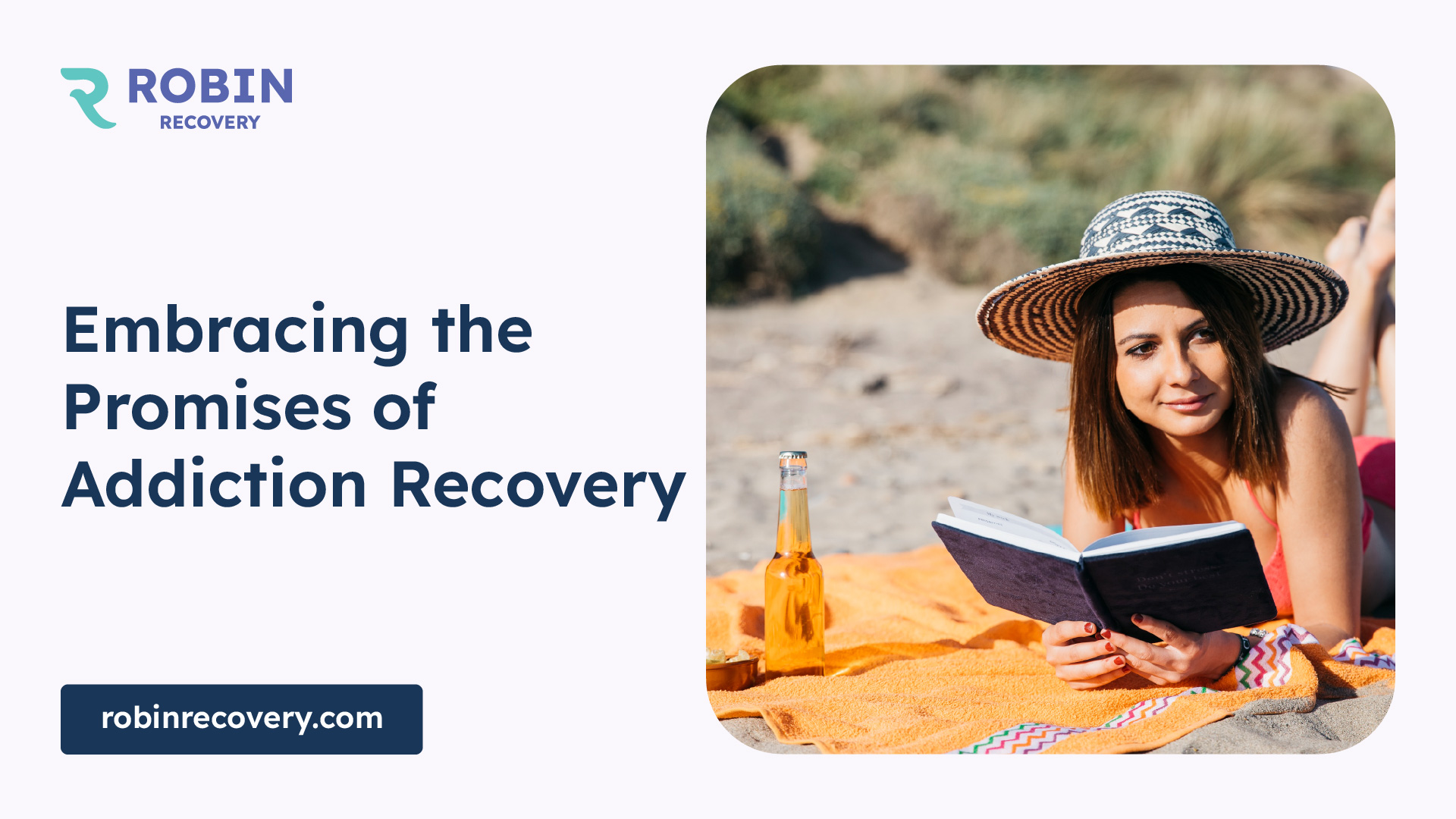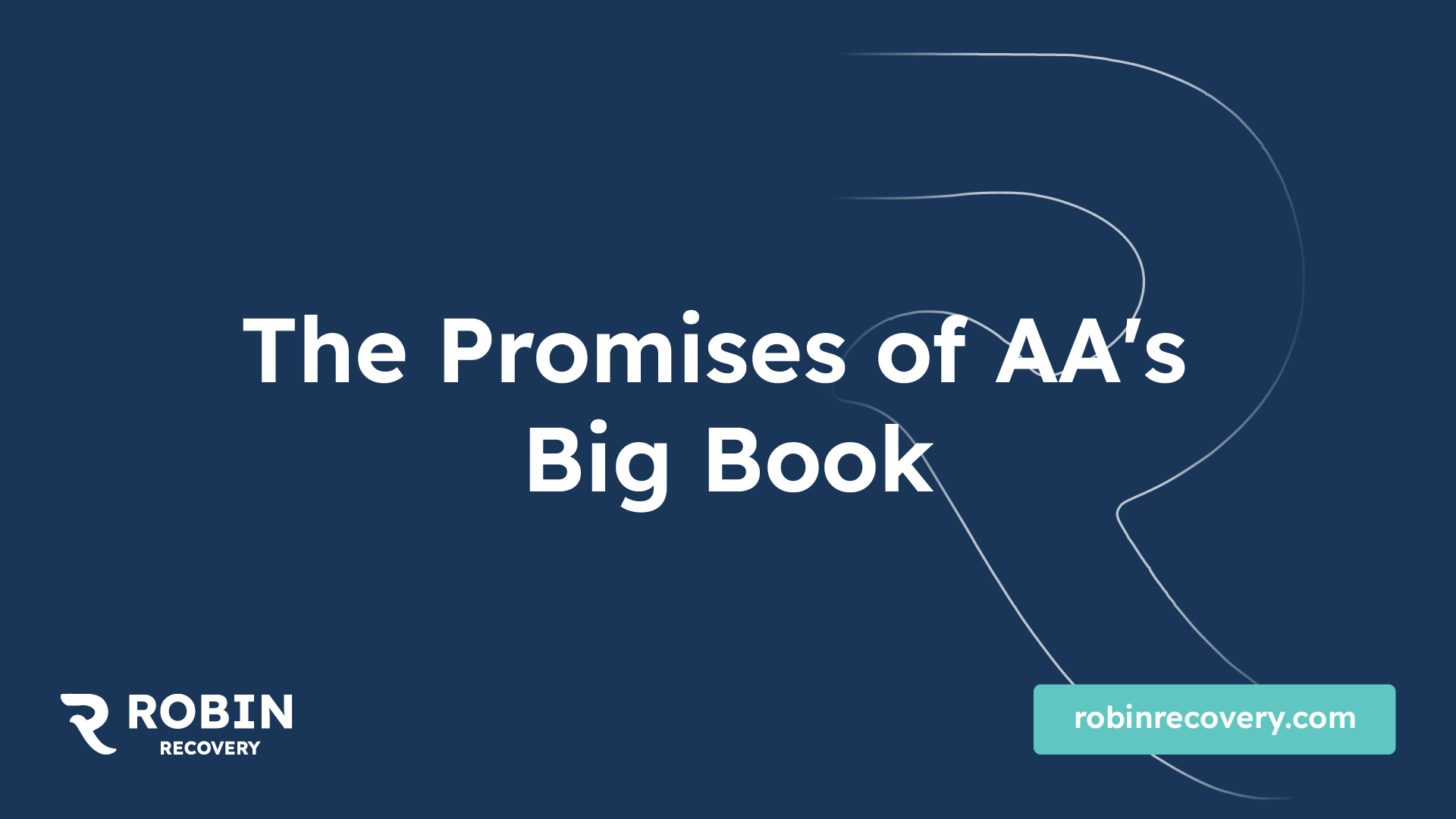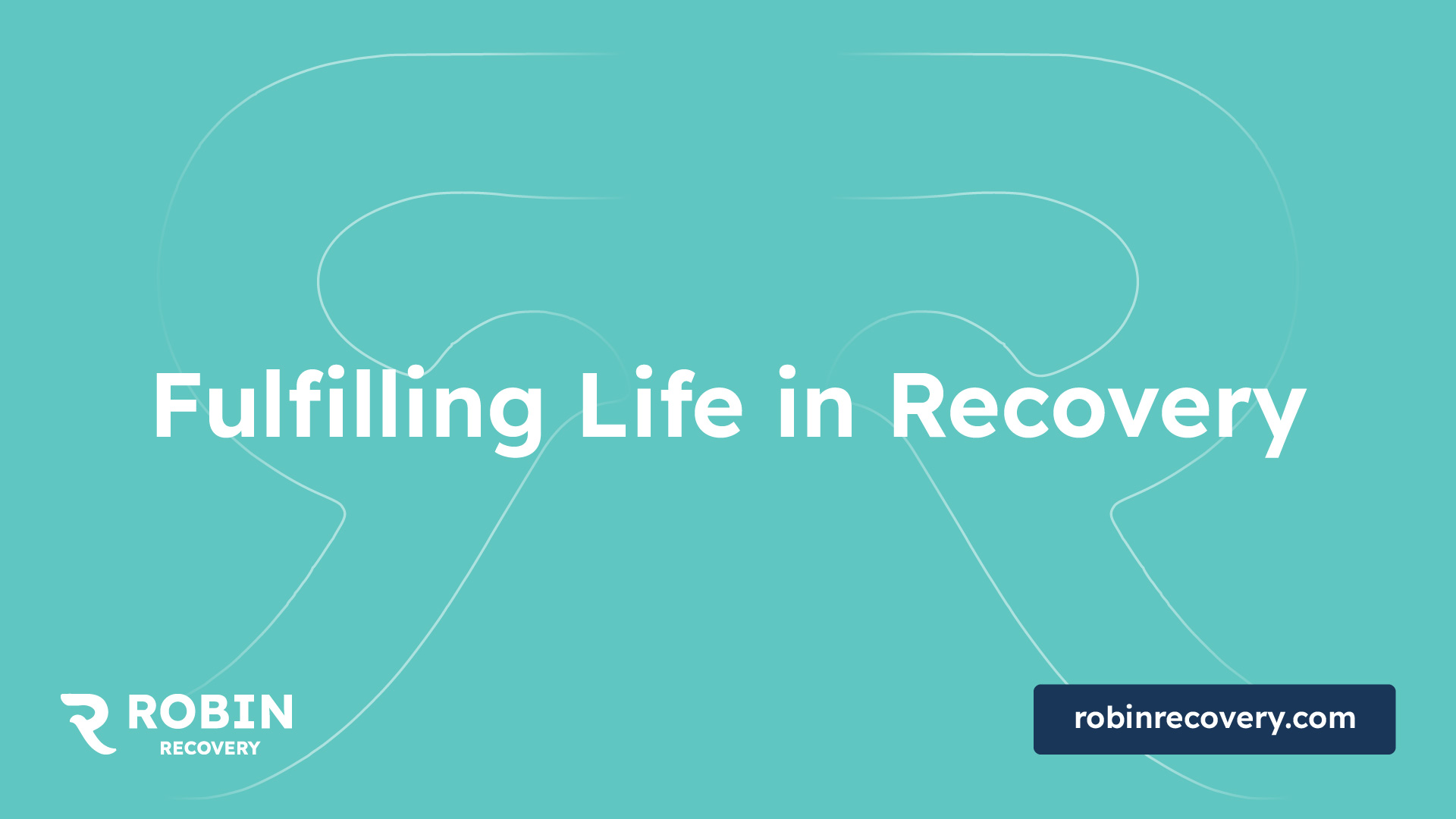Embracing the Promises of Addiction Recovery


The Promises of Recovery
Recovery from addiction holds great promises for individuals seeking a better life. These promises encompass physical healing, as well as mental and emotional well-being benefits. Let's delve into these aspects of recovery.
Physical Healing in Recovery
One of the key promises of recovery is physical healing. When individuals embark on their recovery journey, they have the opportunity to restore their bodies through proper medical care, rehabilitation, and self-care practices. Physical healing can be a transformative process that helps individuals recover from the physical toll addiction may have taken on their bodies, such as injury, illness, or the aftermath of surgery.
By embracing recovery, individuals can prioritize their health and well-being. This may involve adopting healthier habits, such as regular exercise, balanced nutrition, and adequate rest. Seeking medical guidance and support is also crucial to address any lingering health issues related to addiction.
Mental and Emotional Well-Being Benefits
Recovery also promises significant benefits for mental and emotional well-being. As individuals progress on their recovery journey, they often experience a reduction in stress, anxiety, and depression. By abstaining from addictive substances and engaging in recovery practices, individuals can find relief from the emotional turmoil that often accompanies addiction.
Recovery provides a pathway to develop healthier coping strategies and gain a deeper understanding of one's own strength and resilience. It allows individuals to address underlying emotional challenges, heal from past traumas, and learn new ways to manage stress and emotions.
By staying connected to recovery resources, such as support groups and therapy, individuals can receive the necessary guidance and tools to navigate the ups and downs of their emotional well-being. Cultivating gratitude and practicing stress awareness are also essential components of maintaining mental and emotional well-being throughout the recovery journey.
By embracing the promises of recovery, individuals can experience profound transformations in their lives. These transformations extend beyond physical healing and encompass mental, emotional, and spiritual growth. Recovery opens the door to a life filled with hope, joy, and a renewed sense of purpose.
In the following sections, we will explore how building resilience, embracing the promises outlined in AA's Big Book, and experiencing transformative changes contribute to the fulfillment of a rewarding life in recovery.
Building Resilience in Recovery
Recovery from addiction serves as a catalyst for building resilience, enabling individuals to develop the strength and coping strategies necessary to navigate the challenges that come their way. By embracing the promises of recovery, individuals can strengthen their resilience and experience personal growth and healing.
Strengthening Coping Strategies
One of the key aspects of building resilience in recovery is strengthening coping strategies. Recovery provides individuals with an opportunity to learn new and healthier ways of dealing with stress, triggers, and difficult emotions. By engaging in therapy, counseling, and support groups, individuals can develop effective coping mechanisms that empower them to navigate the ups and downs of life without resorting to substance abuse.
Staying connected to recovery programs and support networks is crucial for ongoing growth and resilience. These connections provide a sense of community, understanding, and encouragement, serving as a source of strength during challenging times. By staying connected to recovery, individuals can access the support and resources needed to reinforce their coping strategies.
Developing Emotional Strength
Recovery also offers individuals the opportunity to develop emotional strength. Through therapy and self-reflection, individuals can gain a deeper understanding of their own emotions, triggers, and vulnerabilities. This increased awareness allows them to better manage their emotions and make healthier choices.
Developing emotional strength in recovery involves building skills such as stress management, self-care, and self-compassion. By practicing stress awareness in recovery and implementing self-care routines, individuals can strengthen their emotional well-being and resilience. Additionally, cultivating an attitude of gratitude and embracing gratitude in recovery can contribute to emotional strength by fostering a positive mindset.
By actively working on strengthening coping strategies and developing emotional strength, individuals in recovery can enhance their resilience and navigate the challenges that arise on their journey. These skills and qualities serve as a solid foundation for maintaining long-lasting sobriety and embracing the promises of recovery.

The Promises of AA's Big Book
The Alcoholics Anonymous (AA) Big Book, in its chapter 6, outlines the promises of recovery for individuals who choose to stay sober and work the Twelve Steps. These promises encapsulate the positive changes that alcoholics can experience on their journey to recovery. Let's explore two of these promises in more detail.
Freedom and Happiness in Sobriety
One of the key promises of AA's Big Book is the attainment of freedom and happiness in sobriety. By embracing a life free from the grip of addiction, individuals open themselves up to a world of possibilities and newfound joy. With recovery, they can break free from the chains of substance abuse and experience a sense of liberation.
Sobriety allows individuals to regain control over their lives, making decisions based on their own values and aspirations. The freedom from the destructive cycle of addiction empowers them to create a life filled with purpose, meaning, and genuine happiness. By maintaining sobriety, individuals can embrace a brighter future full of possibilities.
Overcoming Fear and Insecurity
Another powerful promise of recovery outlined in AA's Big Book is the ability to overcome fear and insecurity. Addiction often amplifies feelings of fear, doubt, and insecurity, making it challenging for individuals to navigate life's challenges. However, in recovery, individuals learn to confront and conquer these fears.
Through the support and guidance provided by AA and the Twelve Steps, individuals can develop the necessary tools to face their fears head-on. They learn to challenge negative thought patterns, build self-confidence, and cultivate resilience. Over time, the grip of fear and insecurity loosens, allowing individuals to live more authentically and embrace a life of courage and confidence.
By working through the Twelve Steps and staying connected to recovery resources such as staying connected to recovery, individuals can continue to experience the promises outlined in AA's Big Book. It's important to note that these promises may manifest differently for each person, as recovery is a unique and personal journey.
As individuals progress in their recovery, they may also benefit from exploring additional resources to support their sobriety. This may include stress management techniques [1].
Remember, recovery is a transformative process that offers hope, healing, and the opportunity to live a fulfilling and meaningful life free from the grip of addiction. By embracing the promises outlined in AA's Big Book and remaining committed to the principles of recovery, individuals can unlock a brighter future and experience the true gifts of sobriety.
Transformative Changes in Recovery
Entering the journey of addiction recovery brings forth transformative changes that profoundly impact individuals' lives. Two significant aspects of this transformation are profound personal growth and joyful community support.
Profound Personal Growth
Recovery programs such as Alcoholics Anonymous (AA), Narcotics Anonymous (NA), or Al-Anon foster an environment where individuals can experience profound personal growth over time. By actively working the program and engaging in meetings, relationships, and daily commitment, individuals find themselves changing for the better [2].
Through recovery, individuals have the opportunity to discover their true selves, build confidence, and develop self-esteem. The process empowers them to overcome past mistakes and make amends, fostering personal growth and healing. As they progress in recovery, they gain valuable insights, learn coping mechanisms, and acquire the tools necessary to navigate life's challenges with resilience and strength.
Joyful Community Support
Contrary to the misconception that sobriety is restrictive and dull, individuals in recovery often find themselves surrounded by joyful, grateful people who support one another and find joy in simple pleasures [2]. The recovery community provides a network of individuals who understand the challenges and triumphs of the journey, creating a supportive and uplifting environment.
By staying connected to the recovery community and attending meetings, individuals benefit from the wisdom, experience, and encouragement of others who have walked a similar path. This supportive network helps individuals find solace, inspiration, and motivation to maintain their recovery and navigate the ups and downs of life.
The joy and camaraderie found within the recovery community extend beyond the meetings. Everyday activities, such as enjoying a meal together or engaging in simple pleasures, can bring immense happiness and a sense of belonging. These connections and shared experiences contribute to a fulfilling and joyous recovery journey.
To fully embrace the transformative changes in recovery, individuals should prioritize staying connected to recovery, practice stress awareness, and cultivate gratitude. These practices further enhance personal growth and foster a sense of community support, ultimately leading to a fulfilling and promising future in recovery.
By embarking on the path of recovery, individuals open themselves up to profound personal growth and find themselves surrounded by a community that brings joy, support, and celebration. These transformative changes contribute to a life that is rich in meaning, purpose, and fulfillment.

Fulfilling Life in Recovery
Recovery from addiction offers individuals the opportunity to embrace a fulfilling life filled with hope, growth, and meaningful connections. Two key aspects that contribute to a fulfilling life in recovery are nurturing healthy relationships and embracing personal growth.
Nurturing Healthy Relationships
Rebuilding and nurturing healthy relationships is a vital aspect of recovery. By prioritizing open communication, making amends, and practicing forgiveness, individuals can rebuild trust and mend broken bonds. Recovery provides an opportunity to improve communication skills, strengthen family dynamics, and develop healthier boundaries. It also involves cultivating supportive friendships and nurturing meaningful connections.
By surrounding themselves with a supportive network, individuals in recovery can create a strong foundation for sustained sobriety. These relationships play a crucial role in providing encouragement, accountability, and understanding. They serve as a source of strength during challenging times and help individuals stay connected to their recovery journey.
Embracing Personal Growth
Recovery is not just about abstaining from substance use; it presents an opportunity for profound personal growth. By engaging in a recovery process, individuals can break free from the grips of addiction and discover their true selves. This journey allows for the development of self-esteem, confidence, and a renewed sense of purpose.
In recovery, individuals learn to use their past experiences as valuable life lessons, reframing their perspectives to grow and learn from their mistakes. This process fosters personal growth, enabling them to move forward with resilience and a positive outlook. For more resources on personal growth in recovery, see our article on gratitude in recovery.
By embracing personal growth, individuals can unlock their full potential and live a life filled with joy and contentment. Recovery provides the tools and support needed to cultivate inner peace and calmness, enabling individuals to navigate daily stresses and challenges with confidence and resilience. To learn more about stress management in recovery, refer to our article on stress awareness in recovery.
Recovery encompasses various aspects of life beyond physical health, mental well-being, and relationships. It offers individuals a promising future filled with hope and resilience. By nurturing healthy relationships and embracing personal growth, individuals in recovery can create a fulfilling life that goes beyond overcoming addiction.
Recovery as a Catalyst
Recovery serves as a powerful catalyst for personal transformation and the unlocking of a promising future. It offers individuals the opportunity to break free from the grips of addiction and embark on a journey towards self-discovery and growth. Let's explore two key aspects of recovery that empower individuals on their transformative path.
Empowering Personal Transformation
Engaging in a recovery process, such as a 12-step program, allows individuals to break free from the grips of substance abuse and addiction. Through this journey, they discover their true selves, build confidence, and develop self-esteem. Recovery becomes a catalyst for personal transformation, enabling individuals to embrace their strengths, address their weaknesses, and make positive changes in their lives [3].
In the process of recovery, individuals learn to use their past experiences as valuable life lessons. They reframe their perspectives, allowing them to grow and learn from their mistakes. This reframing fosters personal growth and empowers individuals to move forward with a renewed sense of purpose. By embracing change and committing to personal growth, individuals open themselves up to the possibilities that lie ahead [3].
Unlocking a Promising Future
Recovery holds a multitude of promises, offering individuals a chance to rebuild their lives and embark on a new beginning. It encompasses various aspects beyond physical health, mental well-being, and relationships. By embracing recovery and committing to personal growth, individuals can unlock a future filled with hope, resilience, and the opportunity for a fresh start [4].
Through acceptance, commitment, growth, and transformation, individuals can unlock a future filled with possibilities. Recovery provides the tools and support needed to create a fulfilling life. It offers the opportunity to rebuild relationships, pursue passions, and achieve personal goals. By staying connected to recovery resources and practicing gratitude, individuals can maintain their progress and continue on their journey towards a promising future [4].
As individuals embrace recovery as a catalyst for personal transformation, they unlock their potential and create a life that is meaningful and fulfilling. Recovery offers hope, resilience, and the promise of a brighter future. By committing to the journey and embracing the opportunities it presents, individuals can experience personal growth, joy, and the fulfillment of their dreams.
References
[2]: https://www.linkedin.com/pulse/promises-recovery-bob-hinds-dba-acata
[3]: https://www.legendsrecovery.com/blog/the-promises-of-recovery
[4]: https://www.perennialrecovery.com/blog/promises-of-recovery
